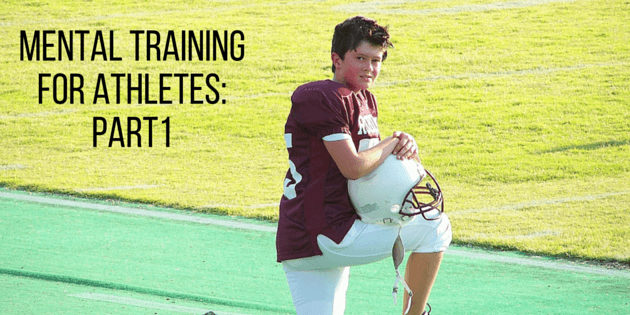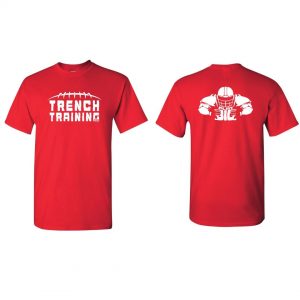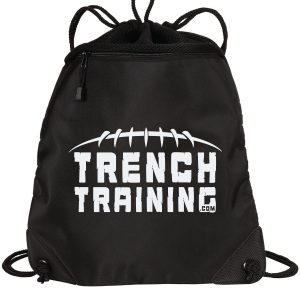As a coach it’s important to not only teach the physical skills of the game but also to provide mental training for athletes.
Mental training for athletes can have a huge impact on their success in sports and in life.
I recently read an article by Jack Lesyk from the Ohio Center for Sport Psychology and found it very interesting and I am going to do two articles regarding this.
This article with focus on the skills of successful athletes.
The second one will discuss Dr. Lesyk’s performance pyramid.
In these two articles you will learn about mental training for athletes and how to prepare for your sport.
Here’s my take on Dr. Lesyk’s 9 mental skills.
The Nine Mental Skills of Successful Athletes
1. Choose and maintain a positive attitude.
In the first skill “Choose and maintain a positive attitude.’ it is imperative to recognize the key word in this statement; “Choose”.
We all have the ability to make choices in our day.
By getting up in the morning and choosing to have a positive attitude will make your workouts, your struggles, your daily routine much more productive and with this attitude you will enjoy your tasks much more.
Athletes do much better when they are enjoying what they do than those that force themselves to do it.
Positive thinking will let you do everything better than negative thinking will. - Zig Ziglar Share on X2. Maintain a high level of self-motivation.
The skill of “Maintaining a high level of self-motivation” is a skill that requires work.
This is what I believe will set the good athletes apart from the GREAT athletes.
As a coach I would prefer to work with an athlete that has high self motivation and less talent over an athlete with great talent and low motivation any day.
Why is this?
In every level of sport that I have played and coached I have seen countless athletes with less ability outplay those around them with more talent.
If you maintain self motivation on a high level you have a great chance of becoming a very successful athlete!
3. Set high, realistic goals.
Many times we set goals that either aren’t challenging enough or goals that are unrealistic.
It is very important that you do not take this skill lightly.
I recommend you get help in this area from someone who understands the importance of setting high, but realistic goals.
Many times our mind (from past messages we received from caretakers and mentors growing up) tells us that we will never reach the goals we set.
We will say things like “that is too difficult to do”, “I am not good enough” or “they are better than me and that is why they can do that”.
Our mind is only using a very small percentage of its ability.
I learned in sports how to push through things that I never thought were possible and now in business I am learning the same thing.
We can reach high goals.
Let that sink in.
“We” meaning all of us, can reach high goals!!
However, if set unrealistic or unattainable goals all the self-motivation in the world won’t sustain your effort.
Find coaches, mentors or counselors to help you set effective goals!
4. Deal effectively with people.
The skill of “Dealing effectively with people” is a skill that will help you throughout your life to find and keep the right people in your camp.
Many talented athletes do not pay enough attention to this skill and that is why they end up unhappy, in trouble, or losing their careers, spouses and money.
Learning this skill takes a lot of practice and patience.
It will require you to get and maintain compassion for others.
Once you are able to understand how important this skill is it is amazing how much better your communication with others will become.
This will set you up as a leader on your team and help you to be able to enhance your communication skills as a player and teammate.
5. Use positive self-talk.
I used to think this skill was BS. 🙁
It would have been nice to learn the importance of this skill early on because I know it would have helped me tremendously if I was able to use positive self-talk.
Only after I was successful did I learn to use this skill and it was typically followed up with “I could have done better”.
To this day it is something that I have to work on a daily basis to help alleviate the chatter and noise of negative comments that go on in my head.
As with any skill this is one that you have to practice.
You have to practice it when you are alone and you have to practice this when you are with others.
You WILL fail and it will make you mad when you do but if you do not fail you will not learn.
Many times I leave a conversation and I will run through the conversation in my head.
I will think of the things that I might have said that would make it more positive.
It is amazing how long I have been doing this and I still make mistakes and have to learn how to re-do my statements.
6. Use positive mental imagery.
I love the skill of using positive mental imagery.
I am a dreamer and I enjoy spending time dreaming or using mental imagery in my day.
When I played I used to spend a lot of my game preparation imagining the blocks that I would make.
I would imagine running into the game, seeing the player that I watched on film line up across from me.
I’d envision the his best and what I was going to do to counter that move.
I would typically have music blasting in my ears and would go over it and over it and over it.
Many times I would be in a game and the music would all of a sudden be in my head and the moves he made would actually slow way down and I would know exactly what to do.
This is a great skill to have. and I would highly recommend you spending time learning this skill.
7. Manage anxiety effectively.
We all have anxiety!!
Many of us do not realize what anxiety is and how it affects us.
For me anxiety can better be described as fear.
When I have a fear or anxiety about something it can be a struggle to keep my emotions under control.
However, once I recognize this as a fear and am able to find out where it is coming from my anxiety goes away.
This is not an easy skill and takes a lot of work to master.
It helps to work with a professional coach or counselor if you are struggling to overcome anxiety.
I have seen athletes with a ton of talent and ability that are frozen by anxiety.
There is nothing wrong with having nerves or emotions running high before a big game.
That is completely normal.
Successful athletes learn to effectively manage their anxiety.
You have all seen a big moment where a player makes a phenomenal play to win a game.
Great athletes learn to manage their anxiety in difficult situations.
They are able to channel that anxiety, slow the game down in their head and make unbelievable plays on a regular basis.
8. Manage their emotions effectively.
Managing emotions is a skill that many overlook, and I believe misunderstand.
I have gone through many hours of counseling to try to manage my anger and sadness in my life.
In order to overcome anger or sadness I learned that instead of managing emotions, it works much better to embrace and own the emotion.
Once I was able to be embrace the anger as a sign that that I need to make a change I became motivated to move forward towards my goals instead of feeling paralyzed by the emotion.
Again, a coach or counselor that is trained in empowering emotions can help you with this skill.
Once you are able to empower your emotions it is amazing what changes you can make in your athletic career!
9. Maintain concentration.
Maintaining concentration was, and still is, a difficult skill for me personally.
Concentration is the skill that helps you to stay focused on your journey to achieve goals.
Lack of concentration can delay this journey.
This is another skill that has to be developed with practice and work.
Listening and concentrating are skills that will help you throughout your life.
It is an internal skill that repetitive practice will help but some people practice very hard at it and yet they still struggle with concentrating.
Finding your passion helps your concentration.
Let’s be honest, if you don’t enjoy what you are doing then it is much more difficult to focus.
I have found that the more passionate I am about the subject the easier it is to concentrate.
If you are an athlete and your passion for the sport is not there then it’s going to be difficult for you to concentrate at level that will bring success.
Some athletes are in sports that they are not passionate about because they are very talented at that sport.
I believe that athletes that are passionate about their sports and are happier participating work harder.
Concentration is a skill that help you make the leap from a good athlete to a great athlete!
These are all skills that will serve you in life as much as they will in sports.
Be sure to take them seriously and work on creating the best possible version of YOU.
Our mission at trenchtraining.com is to help athletes gain the skills necessary to play at a high level.
We also want to foster great attitudes and help with the mental aspect of the game.
I recently became certified as an emotional empowerment coach and feel that this training can have a huge impact on young athletes.
If you would like to learn more about about mental training for athletes please contact me at glenn@trenchtraining.com.
Look for the second part of this topic next week when I discuss Dr. Lesyk’s performance pyramid.
Until then have a great week!
Work Hard, Play Big!
Coach Glenn







